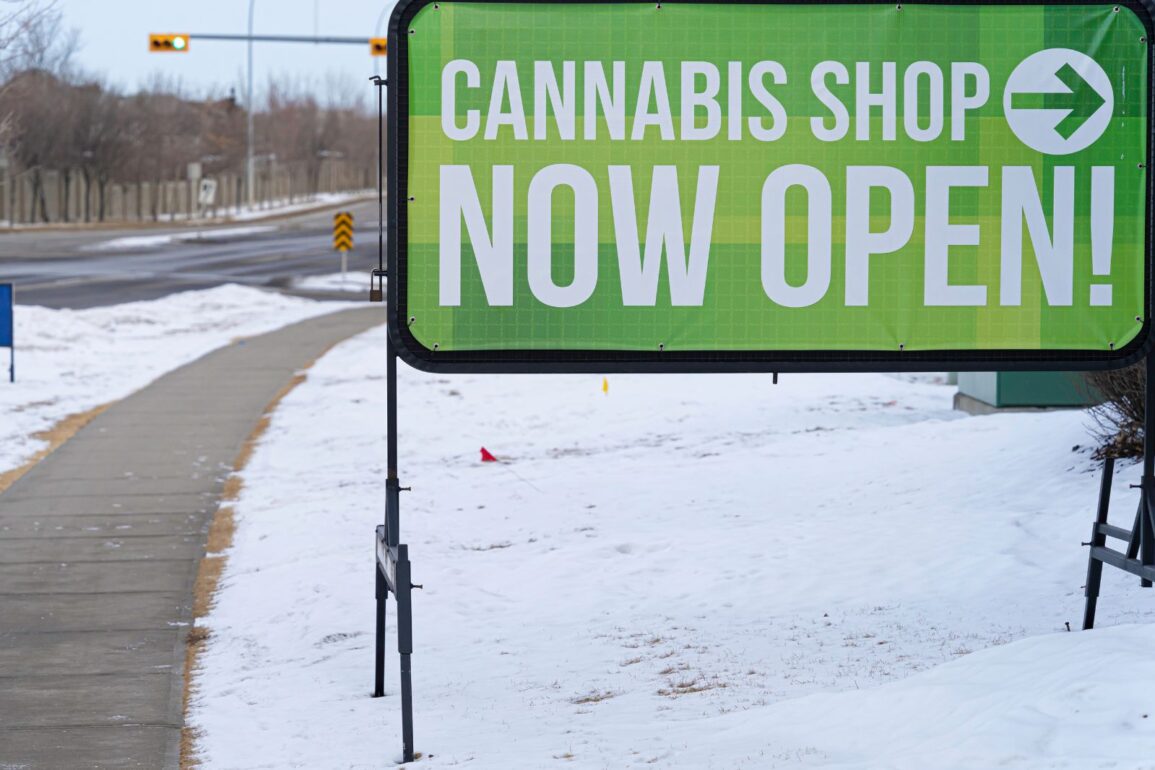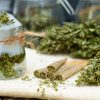The legal status of THCA at the federal level is a complex issue due to its close association with THC. Under the 2018 Farm Bill, hemp-derived products containing less than 0.3% THC are federally legal. However, THCA is a precursor to THC and can convert into THC through decarboxylation (heating). Is THCA Legal? – State-Wise Legality Of A Promising Cannabis – As a result, THCA products may be subject to scrutiny, and the legality can vary depending on state laws.
Table of Contents
- Is THCA Legal In My State?
- What Is THCA?
- What is THCA Hemp Flower?
- How do I Prove my Product is THCA?
- Will THCA Get Me High?
- Will THCA Show Up on a Drug Test?
- Is THCA Flower Legal?
- Is THCA Legal?
- FAQs
Is THCA Legal In My State?
The lawfulness of THCA varies from state to state, making it essential for consumers to be aware of their local regulations. As of this writing, some states have specific laws regarding THCA, while others have not yet addressed its legality. Researching and understanding your state’s laws before purchasing or using THCA products is crucial.
In states where recreational cannabis is legal, THCA products are more likely to be accessible through licensed dispensaries. However, in states with stricter cannabis regulations, THCA products may not be readily available or require a medical prescription.
What Is THCA?
THCA is one of many cannabinoids present in the cannabis plant. It is the acidic precursor to THC and exists in raw cannabis before it undergoes decarboxylation, which occurs with heat exposure. When cannabis is heated, THCA converts into THC, the psychoactive compound responsible for the “high” associated with marijuana consumption.
Research on THCA is still in its early stages, but preliminary studies indicate potential health benefits. THCA has been explored for its anti-inflammatory, antiemetic, and neuroprotective properties, making it an exciting subject for medical research
2018 Farm Bill: Hemp Flower Vs. Marijuana Flower
The 2018 Farm Bill was a landmark legislation that significantly impacted the cannabis industry in the United States. One critical distinction this bill made was between hemp flower and marijuana flower. Understanding this difference is essential, especially regarding the legality of THCA (Tetrahydrocannabinolic Acid) and its various products.
What is THCA Hemp Flower?
THCA hemp flower refers to the raw, unprocessed cannabis flower with high THCA levels and negligible amounts of THC. THCA is a non-psychoactive compound, meaning consuming raw hemp flowers will not result in the “high” typically associated with marijuana use. As such, THCA hemp flower is commonly sought after for its potential therapeutic benefits without the mind-altering effects.
How do I Prove my Product is THCA?
Proving that a product is THCA requires proper lab testing and certification. Reputable sellers and manufacturers of THCA products will have their items tested by third-party laboratories to verify their THCA content and ensure they meet legal requirements.
Will THCA Get Me High?
No, THCA itself will not get you high. When consumed in its raw form, such as in THCA hemp flower, THCA does not produce the intoxicating effects commonly associated with THC. However, avoiding confusing THCA with THC is essential, as THCA can convert into THC Through decarboxylation (heating). This conversion can occur with exposure to heat, such as during smoking or vaporization.
Will THCA Show Up on a Drug Test?
The likelihood of THCA showing up on a drug test depends on the test used. Standard drug tests often look for THC metabolites, not THCA. However, if the THCA in your system has undergone decarboxylation and converted it into THC, it may be detected in a drug test. To avoid potential issues, it is best to refrain from consuming THCA products before a drug test or inform the testing entity of your use.
Is THCA Flower Legal?
The legal status of THCA flower varies based on its THC content and the laws of the state where it is being sold. Under the 2018 Farm Bill, hemp and hemp-derived products containing less than 0.3% THC are federally legal. THCA flower that meets this criterion is generally considered legal in states where hemp is permitted.
However, it is essential to note that some states still need to explicitly address the legality of THCA flowers, which can lead to ambiguity. Furthermore, THCA flower that has undergone decarboxylation and contains more than 0.3% THC may be considered marijuana and subject to different regulations.
Is THCA Legal?
In summary, THCA itself is not a controlled substance and is non-psychoactive. THCA hemp flower, containing negligible amounts of THC, is generally legal under the 2018 Farm Bill, provided it meets the 0.3% THC threshold. However, staying informed about the laws and regulations specific to your state is crucial, as they can vary.
FAQs
As the interest in THCA and its potential health benefits grows, questions about its legal status often arise. Here are some common questions about THCA’s legality:
What is THCA Hemp Flower?
THCA hemp flower is a raw cannabis flower with high THCA content and minimal THC. It does not produce psychoactive effects.
How do I Prove my Product is THCA?
Proving THCA content requires third-party lab testing to verify its potency.
Will THCA Get Me High?
THCA is non-psychoactive but can convert to THC through decarboxylation, potentially causing intoxication.
Will THCA Show Up on a Drug Test?
THCA itself is not commonly tested for in standard drug tests. However, converted THC may be detectable. Does thca show on a drug test?: yes, it shows on every test.
Is THCA Flower Legal?
THCA hemp flower with less than 0.3% THC is generally legal under the 2018 Farm Bill, but state regulations should be considered.
In conclusion, THCA is a non-psychoactive compound found in hemp flowers with promise for potential therapeutic benefits. While THCA hemp flower is generally legal under the 2018 Farm Bill, the legal status can vary depending on the state and its THC content. As with any cannabis-related product, staying informed about local laws and regulations is essential to ensure compliance and responsible use.

